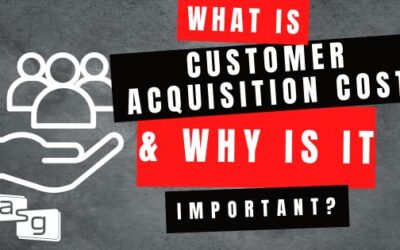How Customer Company Culture Can Influence Sales
“No companies, vendors, suppliers or anyone wishing to do business with [company] can contact directly or speak to anyone about their products or services, nor can they register their company, products or services on the website as previously done before.”
I learned of this edict in a LinkedIn group. It is the policy of a Fortune 100 company, straight from the CEO. No one in that company is allowed to engage with a salesperson unless they initiate the engagement — interesting.
Can you imagine the culture of this company?
Every Company has a Culture
A company culture is the environment, the norms and the behaviors in which that organization operates. It’s the core ideology of the company. Cultures are an interesting thing, they exist whether or not they were designed. Every company has a culture whether they built it or not.
There are companies whose culture is defined, stated, managed to and lived by the employees. It’s deliberate
There are companies who don’t have a stated culture and the organizations culture is haphazard and victim to the whims, challenges and issues of the organization. It’s difficult to know the direction of the organization. Things change often and cultures like this are normally negative and reactive. There is little collaboration and lots of competing agendas.
There are companies whose culture is defined and stated but not managed to. These organizations are the most maddening as the contradiction creates confusion. Some of the employees adhere to the culture and demonstrate the desired behaviors, while others don’t. In spite of the stated culture, when faced with difficult decisions, or major challenges, the culture is rarely maintained in exchange for the short term or easy gain. Environments like this are tricky to navigate. Behaviors don’t match the stated expectations. The culture expectations are used situationally to further competing agendas. It’s not a guiding light. It’s difficult to gain a solid footing in organizations like this. The rules seem to always change.
The most successful companies have well defined cultures and manage to them. They are the guiding principles of the organization. They are used at times of conflict to aid in decision making. When faced with a difficult decision, “do we go left or do we go right,” the culture acts as the framework for which direction to go.
Disneyland created an entire language to highlight its core value of making guests happy. Employees are “cast members.” Customers are “guests.” Jobs are “parts” in a “performance.” All Disney new “parts” in a “performance” (employees) are required to go through a “Disney Traditions” training in order to learn how to make guests happy.
Google has “20% time” where employees get 1 day a week to work on anything they want that could further the business of Google. 3M does this too, but it’s only 15%.
Zappos offers $2,000 dollars to every employee after they’ve completed training to leave. They want anyone who doesn’t feel they are a good fit to leave as soon as possible.
These are all examples of a companies culture in action.
Culture’s are the personality of a company. A company is the sum of its employees behaviors, decisions, and policies. A companies culture drives everything. It’s the foundation for getting things done, therefore it is critical for salespeople to understand the culture of the company they are selling to.
How Does a Company Culture Affect Selling?
Smart salespeople understand the culture they are selling to. Would you sell to Zappos, the same way you would sell to Google? Would you sell to Disney the same way you would sell to GE? Company culture matters when it comes to building successful companies that last. It also matters when it comes to selling.
WITCE (What is the Customer Experience) – Company Culture Questions
1) What is the customer’s company culture?
2) Is it a stated culture or a default culture? Is the culture managed to?
3) Does your product or service affect the company culture? How/why?
4) Does your product enhance the company culture?
5) Are you selling your product or service with their company culture in mind?
6) How does their company culture affect the buying process?
7) Does their company culture blend with yours? If not, is it a good fit? Should you consider not selling to them?
8) Are you factoring company culture into your deal strategy?
Company culture always plays a role in the buying process, sometimes less than others. Sometimes the salesperson doesn’t even know. The key, don’t leave it to chance. Know the personality of the company your selling too. Company culture matters, whether you realize it or not.
Now go read the first paragraph in this post. What is the culture of this company? How would you sell to this company?




0 Comments